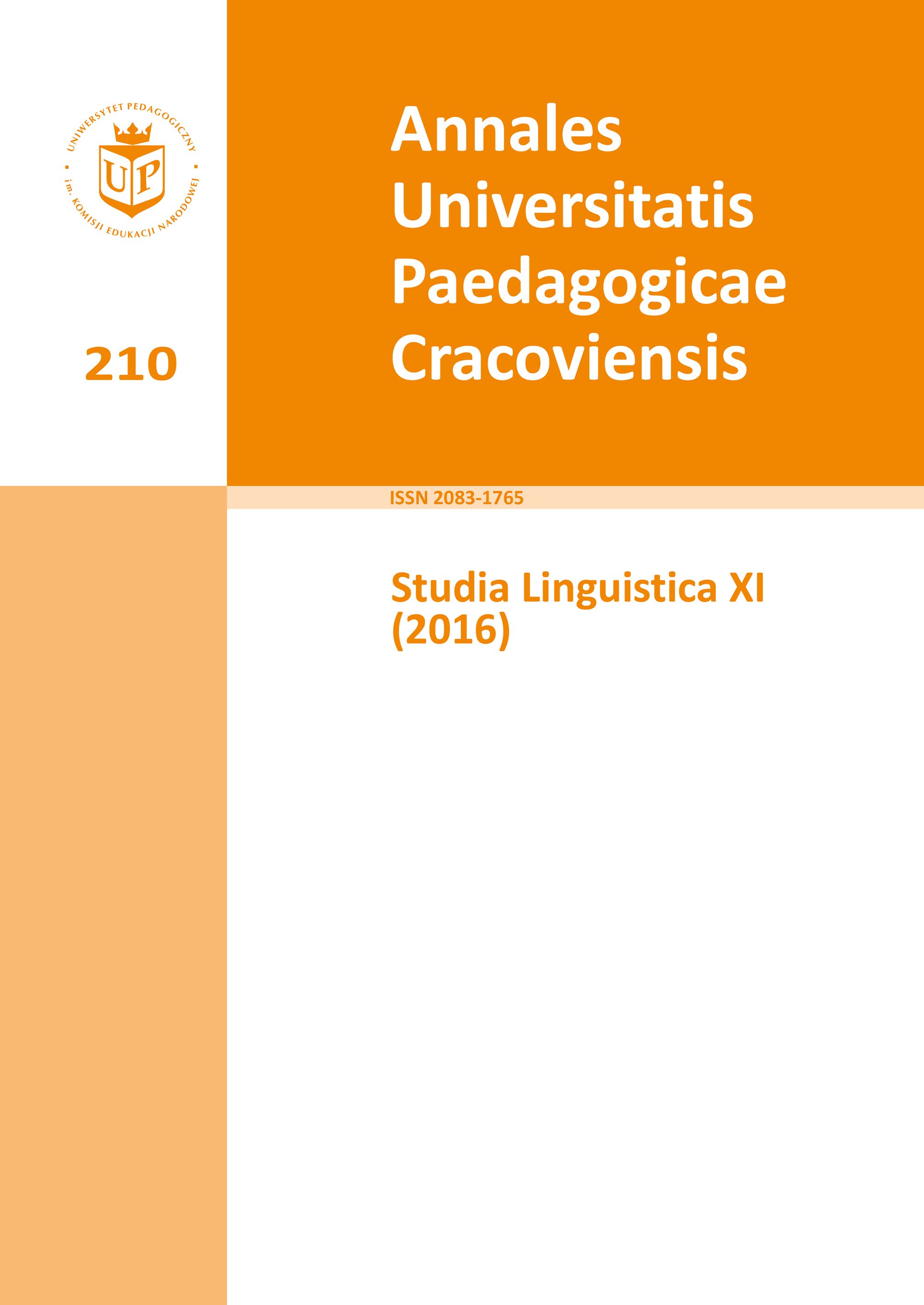Współczesny dyskurs polityczny a zjawisko nowomowy
Main Article Content
Abstract
In the article I discuss the problem of contemporary Polish political communication. In its communicative dimension, the contemporary mediatized reality has become an area of func- tioning of polarized and linguistically and ideologically separate communities: media broad- casters with their offer and separate recipient groups (with different competencies). The polarity of worldview and its linguistic realizations is the most visible in the Polish official political discourse. In the media it is realized mostly by linguistic activities of purely ideolog- ical character. Such polarized political discourse of the media has led to ideologically charged ‘double vision’ of reality and its conceptualization ‘Us - Them’ being the most characteristic trait of the contemporary media communication in our country. The phenomena discussed above, typical for current political discourse, are worrying because they draw our attention to a linguistic - and seemingly historical - category: to newspeak.
Downloads
Article Details
Author, submitting a text to the editorial board of the journal “Annales Universitatis Paedagogicae Cracoviensis. Studia Linguistica", certifies that the content of the article has not been published so far and that the work does not violate in any way the copyright or related rights of other person, as well as other rights of third parties, and that no one's rights to the work (or any part thereof) have been missed. After signing the contract, the property rights to the published materials are transferred to the University of the National Education Commission, Krakow.
“Annales Universitatis Paedagogicae Cracoviensis. Studia Linguistica” is an open access journal, and all its content is made available free of charge to users and institutions under the Creative Commons CC-BY-NC-ND 4.0 license (attribution, non-commercial use, no derivative works). Under this license, the authors agree that their work may be lawfully reused for any purpose, except for commercial purposes, without the prior consent of the author or publisher. Everyone can read, download, copy, print, distribute and process these works, provided that the author's marking and the original publication place are correct. Published texts may not be used to create derivative works (e.g. to translate and publish in another language without the consent of the publisher). This is in line with the BOAI (Budapest Open Access Initiative) definition. "Studia Linguistica" does not charge for submitting or processing articles.
References
Barker Ch., 2005, Studia kulturowe. Teoria i praktyka, tłum. A. Sadza, Kraków.
Google Scholar
Bralczyk J., Wasilewski J., 2008, Język w mediach. Medialność języka, [w:] Dziennikarstwo i świat mediów. Nowa edycja, red. Z. Bauer, E. Chudziński, Kraków, s. 379–404.
Google Scholar
Duszak A., 1998, Tekst, dyskurs, komunikacja międzykulturowa, Warszawa.
Google Scholar
Fleischer M., 2003, Stabilność polskiej symboliki kolektywnej, [w:] Język w kręgu wartości, red. J. Bartmiński, Lublin, s. 107–143.
Google Scholar
Głowiński M., 2001, Nowomowa, [w:] Współczesny język polski, red. J. Bartmiński, Lublin, s. 173–182.
Google Scholar
Jenkins H., 2007, Kultura konwergencji. Zderzenie starych i nowych mediów, tłum. M. Bernatowicz, M. Filiciak, Warszawa.
Google Scholar
Kamińska-Szmaj I., 2007, Agresja językowa w życiu publicznym. Leksykon inwektyw politycznych 1918–2000, Wrocław.
Google Scholar
Kępa-Figura D., Nowak P., 2006, Językowy obraz świata a medialny obraz świata, „Zeszyty Prasoznawcze”, nr 1–2, s. 51–62.
Google Scholar
Kiklewicz A., 2013, Polskie dyskursy współczesności: między językiem a kontekstem, [w:] 70 lat współczesnej polszczyzny. Zjawiska – procesy – tendencje, red. A. Dunin-Dutkowska, A. Małyska, Lublin, s. 341–363.
Google Scholar
Kudra B., 2015, Wartości jako „joker komunikacyjny”, [w:] Człowiek, zjawiska i teksty kultury w komunikacji społecznej, red. M. Karwatowska, R. Litwiński, A. Siwiec, Lublin, s. 243–250.
Google Scholar
Miczka T., 2005, Kultura w styku KISS. Pierwsze, czyli proste – Keep it simple, stupid!, [w:] Nowe media. Nowe w mediach 1. W kulturze pierwszych stron, red. I. Borkowski, A. Woźny, Wrocław, s. 87–95.
Google Scholar
Pisarek W., 2002, Polskie słowa sztandarowe i ich publiczność, Kraków.
Google Scholar
Pisarek W., 2007, O nowomowie inaczej, [w:] idem, O mediach i języku, Kraków s. 356–368.
Google Scholar
Pisarek W. (red.), 2006, Słownik terminologii medialnej, Kraków.
Google Scholar
Skowronek B., 2013, Mediolingwistyka. Wprowadzenie, Kraków.
Google Scholar
Zimny R., Nowak P., 2009, Słownik polszczyzny politycznej po roku 1989, Warszawa.
Google Scholar
